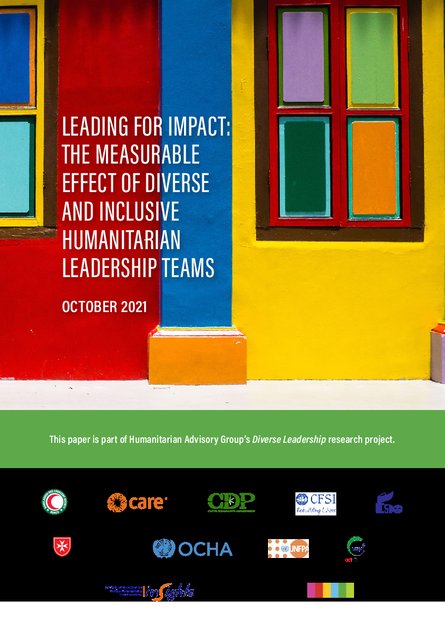
This study explores the links between diverse and inclusive leadership and humanitarian practice. Diverse and inclusive teams comprise people from a broad range of different backgrounds and perspectives and give space and time to value and respect their contributions. In partnership with 13 humanitarian organisations, we used statistical analysis to look at whether organisations with more diverse and inclusive leadership teams also performed more strongly, focusing on innovation culture and prevention of sexual exploitation, abuse and harassment (PSEAH).
The research found a positive correlation between inclusion and representation of the leadership team and an innovation culture. As inclusion and representation increases so too does innovation. The regression analysis found that inclusive and representative leadership is a positive predictor of innovation culture. Where there is a strong inclusive and representative leadership, we can predict that staff will report 25% more innovation promotion than in organisations with less inclusive and representative leadership.
Beyond its primary findings, this study has opened up countless new pathways to understand the impacts of diversity and inclusion. In developing tools to measure the profiles and approaches of leadership teams against organisational performance in different areas of humanitarian practice, it has laid the groundwork for future studies to investigate the importance of diverse and inclusive leadership for the sector’s core goals. As an ever-stronger chorus of voices calls for change, among the different arguments they make, we hope that evidence will be able to play an ever-stronger role.
